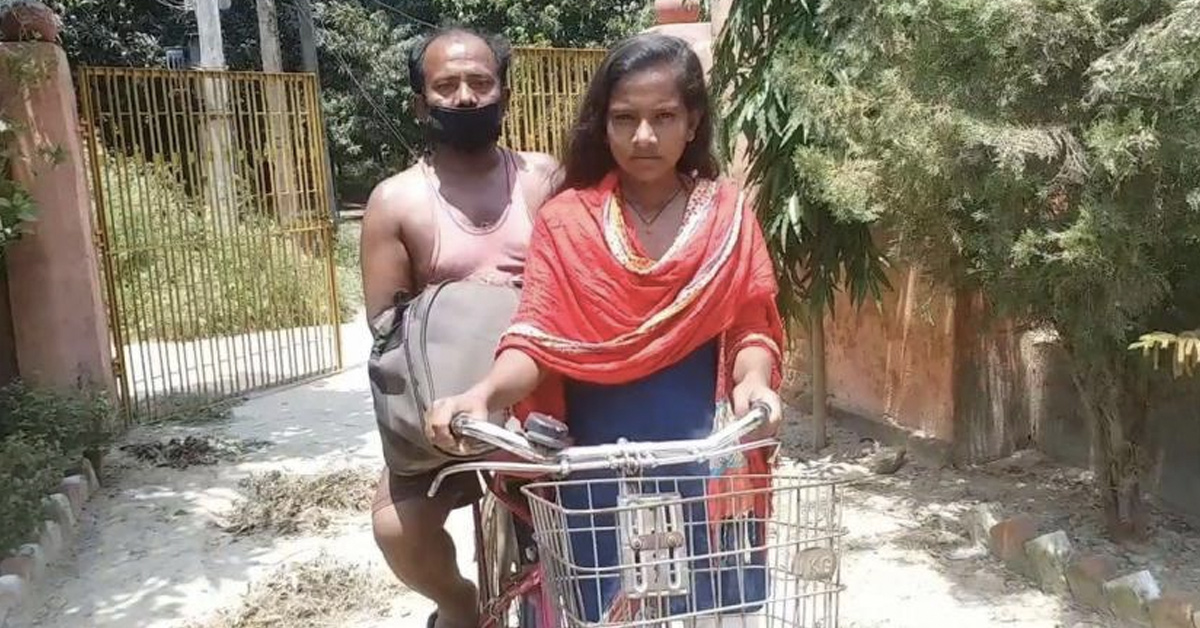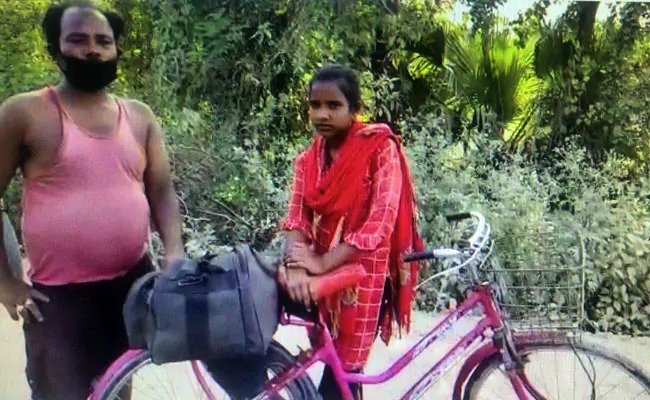Cycling
Instead of a trial, 'Bicycle Girl' Jyoti needed government's help to reach home

Bihar teenager Jyoti Kumari rode home from Delhi with her injured father on the pillion. Now being hailed as India’s ‘bicycle girl’, who was forced to pedal some 1,300 km to Dharbhanga in Bihar from Gurugram in Delhi with her injured father Mohan Paswan as pillion rider due to the extended lockdown, Jyoti is just an exhausted 15-year-old now.
While her feat is being admired everywhere, she has turned down an offer from the Cycling Federation of India (CFI) to go for trials as a trainee at the National Cycling Academy in New Delhi, saying she wants to focus on education.
Jyoti had gone to Gurugram with her mother and brother-in-law at the end of January after her father broke his leg in an accident while driving his e-rickshaw. Her mother and brother-in-law returned to the village but she remained to look after her father.
Following the extended lockdown, the father and daughter were left with little option when their landlord asked them to vacate their room.
Jyoti suggested that they too should leave for their village like others but had no money. She bought a second-hand bicycle from a neighbour and with her father on the pillion, they set off on their journey on May 10.
 Cycling for seven days, Jyoti reached her home in Dharbhanga
Cycling for seven days, Jyoti reached her home in Dharbhanga
Though, they did manage to hitch rides on trucks and tractors for stretches across Uttar Pradesh, Jyoti cycled for long hours on the seven-day journey to reach home on May 16.
During the past two months under India’s coronavirus lockdown, millions of migrant laborers and their families have poured out of India’s cities, desperate and penniless, as they try to get back to their native villages where they can rely on family networks to survive.
Many haven’t made it. Some have been crushed by trains; others run over by trucks. A few have simply collapsed while trudging down a long, hot highway, dead from exhaustion.
But amid all this pain and sadness now emerges a tale of devotion and straight-up grit. The Indian media has seized upon this feel-good story, gushing about Jyoti.
On 22 May, US President Donald Trump’s daughter Ivanka Trump tweeted, “15 yr old Jyoti Kumari, carried her wounded father to their home village on the back of her bicycle covering +1,200 km over 7 days. This beautiful feat of endurance & love has captured the imagination of the Indian people and the cycling federation!”
15 yr old Jyoti Kumari, carried her wounded father to their home village on the back of her bicycle covering +1,200 km over 7 days.
This beautiful feat of endurance & love has captured the imagination of the Indian people and the cycling federation!?? https://t.co/uOgXkHzBPz
— Ivanka Trump (@IvankaTrump) May 22, 2020
However, many people see Jyoti's seven-day journey as the government’s failure to take care of migrant workers travelling back home from their places of work in cities during the pandemic-induced lockdown.
Scholars estimate that tens of millions are on the move, the biggest migration of human beings across the subcontinent since the partition of India and Pakistan in 1947.
When it becomes a matter of survival, migrant labourers will try to go home, because that is where their real social safety net lies. That’s exactly why Jyoti had to hit the road. Jyoti has been here a victim of government apathy and offering her a trial by the cycling federation is merely a celebration of India's migrant crisis which the government has failed to address in the manner it should have.
National Conference’s leader Omar Abdullah’s reaction to Ivanka’s tweet said, “Her poverty & desperation are being glorified as if Jyoti cycled 1,200 KM for the thrill of it. Government failed her, thats hardly something to trumpet as an achievement (sic).”
Her poverty & desperation are being glorified as if Jyoti cycled 1,200 KM for the thrill of it. Government failed her, thats hardly something to trumpet as an achievement . https://t.co/i33ImFm0fr
— Omar Abdullah (@OmarAbdullah) May 22, 2020
Economist Rupa Subramanya responded to Ivanka’s tweet with, “Are you seriously this clueless? This kid and her family had to go through this horrific experience because of India’s ill-conceived total lockdown which has resulted in a humanitarian disaster, not because she’s aspiring to be a professional cyclist.”
What a clueless dolt @IvankaTrump has revealed herself to be. This kid and her family had to go through this horrific experience because of India's ill-conceived total lockdown which has resulted in a humanitarian disaster, not because she's aspiring to be a professional cyclist. https://t.co/WLHsDUBm1C
— Rupa Subramanya (@rupasubramanya) May 22, 2020
What Jyoti needed was a helping hand with which she could have reached home and not a trial which glorifies her plight.






